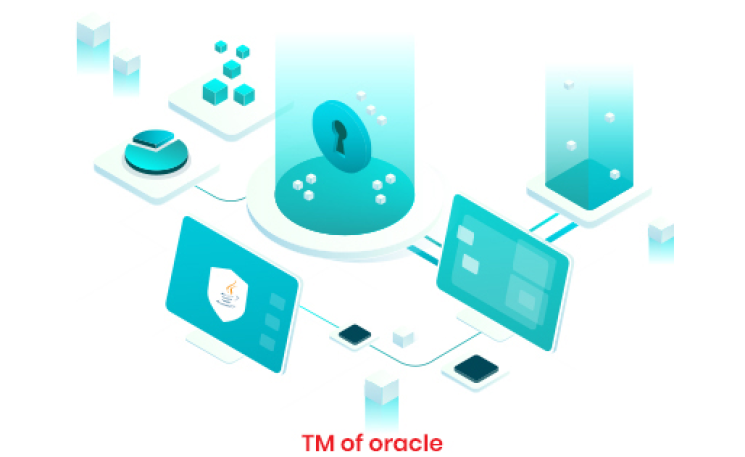Understanding the Importance of Oracle Java License and Oracle BYOL for Your Business
In today’s technology-driven world, companies increasingly rely on robust and scalable platforms to manage operations, build applications, and stay competitive. Among the most trusted platforms in the enterprise space is Oracle, which offers powerful solutions like Oracle Java License and Oracle BYOL (Bring Your Own License). These licensing models are pivotal for companies looking to control costs, maintain compliance, and optimize performance.
This blog will explore what the Oracle Java License and Oracle BYOL mean for businesses and how to navigate these options efficiently. Whether you’re a small startup or a large enterprise, understanding these licensing strategies is essential to manage your Oracle environment effectively.
What is Oracle Java License?
The Oracle Java License refers to the commercial licensing model introduced by Oracle for the use of its Java SE (Standard Edition) software. While Java was historically free for development and personal use, Oracle changed its licensing policy in 2019. Now, for commercial users, Java SE requires a paid subscription or license.
This change created a significant shift in how companies approach Java usage. Businesses that continue to use Oracle Java SE in production environments without a valid Oracle Java License may be at risk of non-compliance and legal liabilities.
Key benefits of acquiring an Oracle Java License include:
-
Access to commercial features not available in the open-source versions.
-
Security updates and patches, which are critical in enterprise environments.
-
Reliable support from Oracle, ensuring business continuity.
-
Improved performance for mission-critical applications.
Companies must regularly audit their Java usage to ensure they are not unknowingly in breach of Oracle’s licensing rules. A clear understanding of what constitutes commercial usage versus personal or development usage can help avoid costly penalties.
What is Oracle BYOL (Bring Your Own License)?
Oracle BYOL stands for “Bring Your Own License.” It is a licensing model that allows companies to use their existing Oracle software licenses in Oracle Cloud Infrastructure (OCI) or other supported platforms. This flexibility enables businesses to migrate to the cloud without repurchasing licenses, thereby reducing costs and protecting previous investments.
The Oracle BYOL model supports a range of Oracle products, including databases, middleware, and Java SE. Organizations already owning valid licenses can deploy them on Oracle-certified environments such as:
-
Oracle Cloud
-
Amazon Web Services (AWS)
-
Microsoft Azure
-
Google Cloud Platform (GCP)
Key advantages of Oracle BYOL include:
-
Cost savings: Businesses can avoid paying for new licenses when moving to the cloud.
-
Simplified cloud migration: BYOL enables a smoother transition from on-premise infrastructure to cloud platforms.
-
Compliance assurance: Helps maintain licensing compliance during hybrid or cloud transitions.
-
Increased flexibility: Allows businesses to scale as needed using licenses they already own.
It’s essential to note that while Oracle BYOL offers flexibility, businesses must ensure their usage aligns with the licensing agreement terms. Usage metrics, deployment regions, and virtual environments must all be monitored to stay compliant.
How Licensing Oracle Can Help
Navigating Oracle’s licensing policies can be complex, especially when dealing with high-value platforms like Java SE and OCI. That’s where Licensing Oracle comes in—a trusted partner that helps businesses streamline Oracle licensing strategies and avoid costly pitfalls.
Licensing Oracle offers specialized consulting services that focus on:
-
License optimization to reduce excess spending
-
Compliance audits to avoid legal risks
-
Migration assistance for transitioning to Oracle BYOL
-
Strategy development for long-term Oracle software usage
By working with experienced professionals, companies can gain peace of mind knowing that their licensing is aligned with Oracle’s legal requirements and business needs.
Common Challenges with Oracle Licensing
Both Oracle Java License and Oracle BYOL models present unique challenges. Businesses often face confusion over which licenses are required, how to interpret licensing agreements, and how to remain compliant when scaling operations.
Some of the most common issues include:
-
Unintentional non-compliance due to lack of awareness.
-
Over-licensing, where companies pay for more licenses than needed.
-
Under-licensing, putting companies at legal risk.
-
Difficulty in understanding Oracle’s audit processes and responding appropriately.
These challenges underscore the importance of working with licensing experts and conducting regular internal audits.
Best Practices for Oracle Licensing Management
To effectively manage Oracle Java License and Oracle BYOL, companies should consider implementing the following best practices:
-
Conduct Regular License Audits: Identify what Oracle products are being used and whether they are correctly licensed.
-
Maintain Clear Documentation: Keep a record of all license agreements, usage reports, and compliance checks.
-
Stay Updated on Licensing Changes: Oracle frequently updates its licensing terms. Keeping informed helps avoid surprises.
-
Engage Licensing Experts: Work with professionals who specialize in Oracle licensing to ensure you’re on the right track.
-
Leverage Oracle Support: Use official Oracle support channels for clarity on your licensing needs.
Conclusion
In an era where IT environments are increasingly complex, managing software licenses wisely is more critical than ever. The Oracle Java License ensures legal and secure Java usage, while Oracle BYOL empowers businesses to maximize the value of existing investments when moving to the cloud. By understanding these licensing models and working with reliable experts like Licensing Oracle, businesses can achieve compliance, efficiency, and long-term success.
Whether you’re launching a new project or transitioning to the cloud, make sure your Oracle licensing strategy is solid—your bottom line and legal standing may depend on it.
- Share

YOU MIGHT ALSO ENJOY
Iowa Medical Cannabis Card Online: A Complete Guide to Accessing Iowa Medical Marijuana Card Services
Stephen Romero - January 16, 2026
Navigating Legal Excellence: Discover the Best Corporate Law Firms in India
Stephen Romero - December 31, 2025
Choosing the Right Hamilton Driving School near me A Complete Guide for New Drivers
Stephen Romero - December 23, 2025
search
FAST ACCESS
- art&gallery (4)
- Automotive (25)
- beauty (7)
- blog (419)
- Business (744)
- cleening (13)
- clinic (1)
- courier services (4)
- dentel care (6)
- Driving school (3)
- electronics (1)
- events (1)
- food (1)
- forests (11)
- gameing (5)
- Health (27)
- Health & Fitness (218)
- Home & Garden (16)
- Landscaping (1)
- Law (16)
- Lifestyle (12)
- machinery (5)
- Real Estate (9)
- Share Market (15)
- Shopping (5)
- Technology (31)
- tool (2)
- toys (2)
- Travel (43)
- Wedding & Events (334)
must read
Electropolished Pipe: A Premium Offering from SS Seamless Pipe Manufacturers in India
Stephen Romero - January 21, 2026
Why Industrial Steel Pipes Are Essential for Modern Energy Projects?
Stephen Romero - January 21, 2026
Pipe Fittings Manufacturers in India: Quality Solutions from Trusted Flange Manufacturers in India
Stephen Romero - January 21, 2026
Inconel Plate and Hastelloy Plate: High-Performance Solutions for Extreme Environments
Stephen Romero - January 21, 2026
recent post
ARCHIVES
- January 2026 (127)
- December 2025 (151)
- November 2025 (132)
- October 2025 (105)
- September 2025 (166)
- August 2025 (164)
- July 2025 (150)
- June 2025 (173)
- May 2025 (99)
- April 2025 (1)
- March 2025 (8)
- February 2025 (9)
- January 2025 (8)
- December 2024 (25)
- November 2024 (40)
- October 2024 (11)
- September 2024 (1)
- July 2024 (10)
- June 2024 (11)
- May 2024 (31)
- April 2024 (15)
- March 2024 (19)
- February 2024 (6)
- January 2024 (7)
- December 2023 (11)
- November 2023 (1)
- July 2023 (13)
- June 2023 (21)
- May 2023 (27)
- April 2023 (23)
- March 2023 (16)
- February 2023 (31)
- January 2023 (27)
- December 2022 (11)
- November 2022 (12)
- October 2022 (11)
- September 2022 (11)
- August 2022 (14)
- July 2022 (13)
- June 2022 (19)
- May 2022 (17)
- April 2022 (10)
- March 2022 (12)
- February 2022 (8)
- January 2022 (9)
- December 2021 (19)
- November 2021 (4)
- October 2021 (6)
- September 2021 (4)
- August 2021 (4)
- July 2021 (10)
- June 2021 (6)
- May 2021 (2)
- April 2021 (2)
- March 2021 (45)
- August 2020 (31)
- July 2020 (30)
- June 2020 (29)













